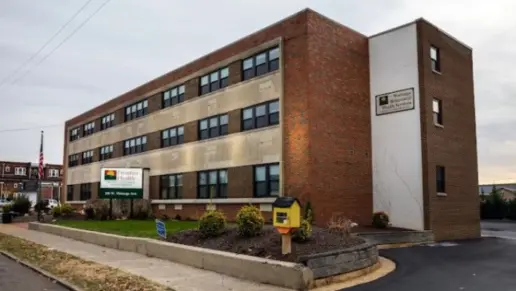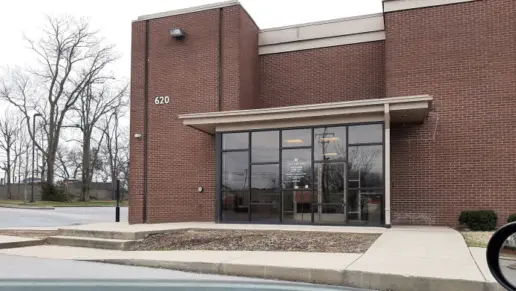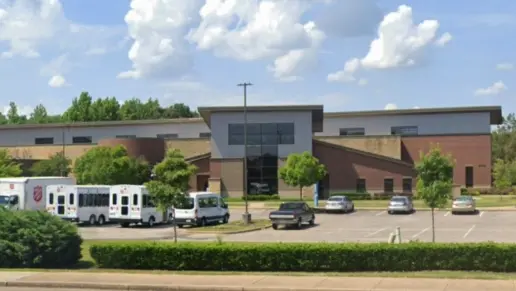About Turning Point Recovery Residence
Turning Point Recovery Residence offers four residential homes in Nashville, Tennessee for men and women who are continuing the path of recovery from a substitute use struggle. This includes this location on Valeria Street. These gender separated residential homes are located in middle class neighborhoods throughout the city. All the homes offer an inviting environment for you to live as you continue receiving services to help you get to a place of sustainable sobriety. There are structured, yet affordable fees for this program.
Turning Point is recognized as one of the state’s leading residential treatment programs. They have a high success rate amongst the individuals they serve and this is largely due to their mandatory and structured house rules.
For some people, these house rules may feel intimidating but a majority of past clients appreciate the structure they provided. These house rules detail everything from when you can have visitors, how long your visitors can stay, different types of activities you might be able to engage in, activities you must refrain from, chores and other rules that will help you focus on building healthy habits.
The homes operate through a support team system and there are house managers that you’ll regularly check in with.
All the homes are conveniently located and most will provide you access to city bus services so that you can get around the town. Whether you need to get to school, work, or recovery meetings, you have the freedom and transportation to do so.
The recovery model here is very much rooted in the 12 step model. As you progress through the program you’ll feel a sense of accomplishment and ownership in your recovery. There are also counseling services you can participate in through the outpatient clinic. Plus, you can look forward to group activities that are regularly put on for you and your housemates as well.
Rehab Score
Addiction Treatments
Levels of Care
Treatments
The goal of treatment for alcoholism is abstinence. Those with poor social support, poor motivation, or psychiatric disorders tend to relapse within a few years of treatment. For these people, success is measured by longer periods of abstinence, reduced use of alcohol, better health, and improved social functioning. Recovery and Maintenance are usually based on 12 step programs and AA meetings.
When your day-to-day life is taken over by drug use, this is known as substance use disorder. If you abruptly stop using your drug of choice, you experience withdrawal symptoms. To overcome this cycle, professional drug rehab in Tennessee is usually needed.
A combined mental health and substance abuse rehab has the staff and resources available to handle individuals with both mental health and substance abuse issues. It can be challenging to determine where a specific symptom stems from (a mental health issue or an issue related to substance abuse), so mental health and substance abuse professionals are helpful in detangling symptoms and keeping treatment on track.
Opioid rehabs specialize in supporting those recovering from opioid addiction. They treat those suffering from addiction to illegal opioids like heroin, as well as prescription drugs like oxycodone. These centers typically combine both physical as well as mental and emotional support to help stop addiction. Physical support often includes medical detox and subsequent medical support (including medication), and mental support includes in-depth therapy to address the underlying causes of addiction.
Programs


Clinical Services
Whether a marriage or other committed relationship, an intimate partnership is one of the most important aspects of a person's life. Drug and alcohol addiction affects both members of a couple in deep and meaningful ways, as does rehab and recovery. Couples therapy and other couples-focused treatment programs are significant parts of exploring triggers of addiction, as well as learning how to build healthy patterns to support ongoing sobriety.
Research clearly demonstrates that recovery is far more successful and sustainable when loved ones like family members participate in rehab and substance abuse treatment. Genetic factors may be at play when it comes to drug and alcohol addiction, as well as mental health issues. Family dynamics often play a critical role in addiction triggers, and if properly educated, family members can be a strong source of support when it comes to rehabilitation.
Group therapy is any therapeutic work that happens in a group (not one-on-one). There are a number of different group therapy modalities, including support groups, experiential therapy, psycho-education, and more. Group therapy involves treatment as well as processing interaction between group members.
In individual therapy, a patient meets one-on-one with a trained psychologist or counselor. Therapy is a pivotal part of effective substance abuse treatment, as it often covers root causes of addiction, including challenges faced by the patient in their social, family, and work/school life.
Contact Information
342 Valeria St
Nashville, TN 37210


